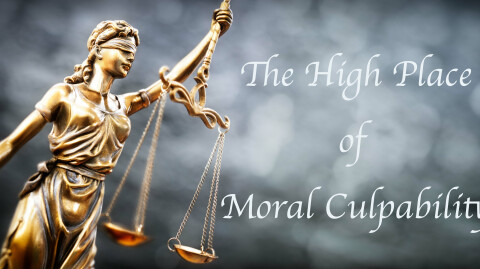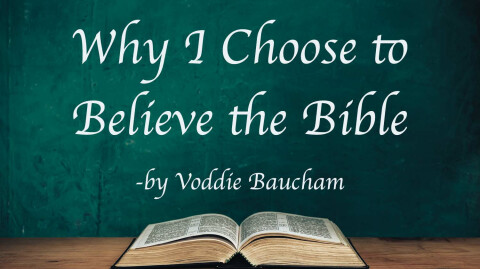If you’ve walked into a church service lately with a baby in your arms, chances are you are well aware of the new anti-child atmosphere that dominates much of the modern American church. There are smiling men and women stationed at every door ready to “guide” you to the nursery where your child “will have a very enjoyable experience” and be cared for by the best childcare staff in the history of the universe.
Rebuff these helpful people and their smiles will soon be replaced with determined glares. Things escalate slowly at first, but eventually, the truth comes out. These people are not here to help you and your child; they are here to protect the sanctity of the sanitized worship environment. Their job is to see that you –and people like you—don’t ruin the service for everyone else. They’ve been warned about people like you. You just don’t get it. For millennia Christians have been denied the privilege of enjoying worship the way God intended it (sans children); now we’ve finally arrived, and you want to mess it up by bringing in your squawking baby! How selfish, inconsiderate, and unspiritual can you be?
Then along come churches like ours that don’t help things a bit. At Grace Family Baptist Church, we don’t have a nursery. Families worship together from the oldest to the youngest. We welcome the cooing of babies and consider the act of taking an unruly child out of the service as an invaluable teaching opportunity for both parent and child. What’s more, we think it is as important for children to learn to ‘endure’ a service, and see worship modeled by their parents as it is for them to have an ‘age appropriate’ lesson. As a result, our church (along with others like it) has been thrust into the middle of many a debate over whether or not the concept of the nursery is “biblical”.
In an effort to address this issue, some pastors have employed what I like to call the “Nehemiah’s Nursery” argument. These men feel the need to justify their use of separate spaces for children by appealing to Nehemiah 8 as “biblical” support for their practice. Unfortunately, this passage does not settle the issue. In fact, the passage in question, the broader Old Testament context, and several New Testament examples all serve as evidence against reading the concept of separating children in a nursery during worship into the words of Nehemiah.
The Passage in Question
The first problem with the “Nehemiah’s Nursery” argument is the fact that the passage in question does not suggest that children are to be segregated into nurseries during corporate worship.
“And all the people gathered as one man into the square before the Water Gate. And they told Ezra the scribe to bring the Book of the Law of Moses that the LORD had commanded Israel. So Ezra the priest brought the Law before the assembly, both men and women and all who could understand what they heard, on the first day of the seventh month. And he read from it facing the square before the Water Gate from early morning until midday, in the presence of the men and the women and those who could understand. And the ears of all the people were attentive to the Book of the Law.” (Nehemiah 8:1-4 ESV)
A careful examination of what Nehemiah said, and what he did not say will make it clear that it is a stretch to argue for the modern practice of segregating children from corporate worship from this text.
What Nehemiah Said
The first problem with the Nehemiah’s Nursery argument is the fact that it goes beyond Nehemiah’s words. Nehemiah is emphasizing who came to the assembly. He is not making a statement about who didn’t come. The text reads, “So Ezra the priest brought the Law before the assembly, both men and women and all who could understand what they heard.” Is the phrase, “and all who could understand…” meant to exclude some? Or is Nehemiah merely emphasizing the fact that everyone came? He does not say, “only those who could understand.” He says all (כֹּל). Every major English translation renders כֹּל [kol] as all in verse two. The Nehemiah’s Nursery argument would be much stronger if Nehemiah had written "only" instead of כֹּל (all).
Second, Nehemiah is emphasizing the scope of the meeting. Many official meetings in Israel included only men or heads of household. In fact, Nehemiah notes that one such meeting took place the very next day. In verse thirteen we read, “On the second day the heads of fathers’ houses of all the people, with the priests and the Levites, came together to Ezra the scribe in order to study the words of the Law.” (Nehemiah 8:13-14) Thus, his words in verse four can be seen as emphasizing the scope and magnitude of the first meeting, and not necessarily declaring who did not come.
What Nehemiah Did Not Say
What Nehemiah said is important. However, what he did not say in this passage may be even more important. Nehemiah informs the reader as to who came to the assembly, but he does not say who, if anyone, was absent. That must be implied from the text. Therefore, making pronouncements about who is not welcome in corporate worship based on this passage is a tricky proposition. To do so is essentially to make an argument from silence.
NEHEMIAH DID NOT SAY ‘CHILDREN’
Nehemiah could have been referring to children, but not necessarily so. It is true that Nehemiah could have been referring to the absence of children in the assembly. However, it is not necessary to read the text this way. There is no precedent in the Old or New Testament for children being excluded from the general assembly of God’s people. In fact, quite the opposite is true. There are numerous instances where men, women, and children are present in public assemblies and worship (see: Deut. 31:12-13; Ezra 10:1; Matt. 18:1-5; 19:13-15; Eph. 6:1-4; Col. 3:20).
Nehemiah could have been referring to the mentally impaired. Nehemiah’s words, “all who could understand what they heard,” could just as easily be a reference to the mentally impaired, or the ignorant. People with a variety of mental disabilities have difficulty understanding what they hear. Should we have the equivalent of a nursery for those who suffer from head trauma or brain disorders? Should we have a special room for those with a low IQ? Wouldn’t a consistent application of the nursery principle –based strictly on Nehemiah’s wording—call for such action?
Nehemiah could have been referring to foreigners. Foreigners, or those who speak another language, would also qualify as those who could not ‘understand’ the words being read. Foreigners who have not mastered Hebrew sufficiently would definitely have had difficulty understanding what they heard, and thus (if we view Nehemiah’s words as a precedent for the exclusion of such people from the public assembly), they would definitely have to be excluded.
There is nothing in Nehemiah’s words to indicate that he had to be speaking of children when he penned this clause. We must also remember that Israel was very particular about who could and could not participate in worship. There were segregated sections of the assemblies, and not everyone could participate freely. As Victor Matthews notes:
To determine those who could freely participate in the ritual activities of the temple, the entire nation was divided according to the pattern set in the genealogical list in Neh. 7:7-60. The population of Judah was therefore made up of the following classifications: priests, Levites, laypersons, converted Jews, men of uncertain descent, eunuchs, and non-Jews. To participate fully in the religious activities of the community, a person had to be able to provide proof of pure lineage (Ezra 2:59-63). (Victor Matthews, Manners and Customs in the Bible, Peabody, MA: Hendrickson Publishers, Inc., 1988, 1991)
Hence, there is not only the question of whether it is appropriate to assume that Nehemiah was referring to children in chapter eight, it is also necessary to note that the New Testament church no longer employs exclusionary Old Testament patterns in worship. Therefore, even if Nehemiah was making a reference to the absence of children, that in itself would not be sufficient grounds to argue for the systematic exclusion of children from the gathering of the New Testament church.
NEHEMIAH DID NOT SAY WHERE THE “OTHERS” GATHERED
Another key weakness in the Nehemiah’s Nursery argument is the fact that Nehemiah makes no mention of where the others gathered. Nor does he imply that there was such a gathering (i.e., a nursery). Why not say that those with young children should stay home and not come to church at all? Wouldn’t that be more in keeping with what actually happened in Nehemiah’s day? Is it even conceivable that there was an actual nursery on site with workers waiting to take little children from the arms of their mothers as they walked into the service?
Of course, this raises another question. Who was watching the children in the nursery? If the gathering included “all who could understand what they heard,” that would leave only foreigners and those with mental disabilities, or low IQ to care for the children. Anyone else would have been able to understand, and thus “gathered at the square before the water gate.” This is simply an untenable position.



